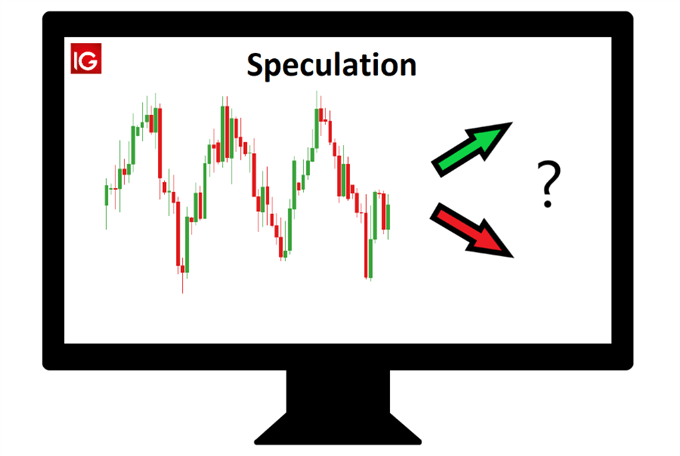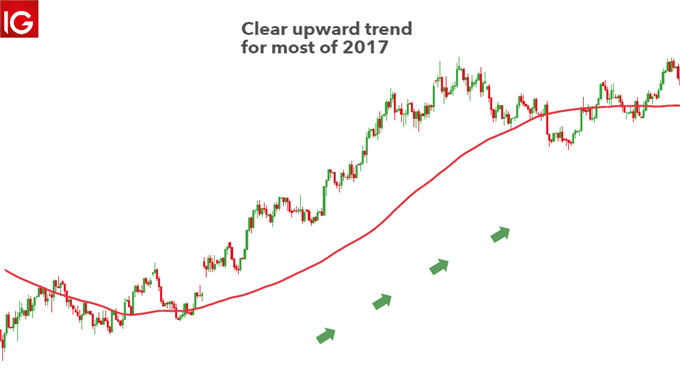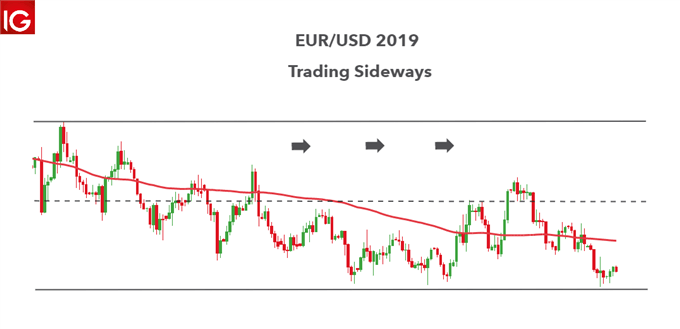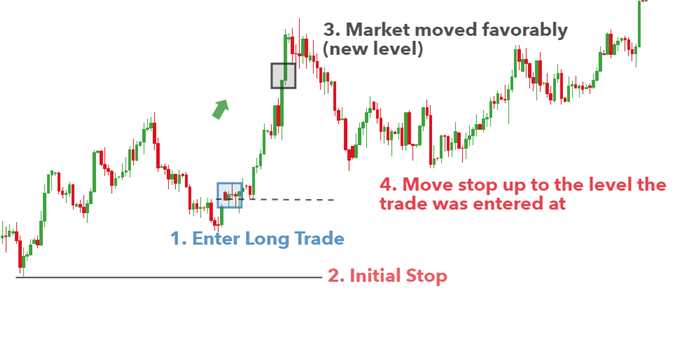
Forex speculation is the name of the game in trading. Every trader, at some point or another, has to click ‘buy’ or ‘sell’ and commit to a position based on their analysis even though there is no guarantee of success. Unfortunately for traders, the market can have a very different viewpoint of the market and this can bring about a moment of serious introspection.
This article seeks to deal with some of those hard-hitting questions and explores the following:
What is speculation in the foreign exchange market?
What happens when it all goes wrong?
Top 4 tips to speculate like a successful trader
WHAT IS SPECULATION IN THE FOREX MARKET?
Speculation in the foreign exchange market involves the buying and selling of currencies with the view of making a profit. It is called speculation because of the uncertainty involved as no one can say for sure whether the market will be going up or down. Traders assess the likelihood of either scenario before placing a trade.
WHAT HAPPENS WHEN IT ALL GOES WRONG?
After you’ve developed a trading strategy centered around forex speculation and learned the basics of the market – you have many of the tools that are needed to be successful. And when that success doesn’t come, numerous questions can swirl around inside your head.
“Am I trading the right strategy?”, “Do I really know what I’m doing?”
These questions/doubts are not unique. Most traders have these thoughts at some stage or another and have learned how to overcome them. Let’s address these questions directly:
1) Am I Trading the Right Strategy?
Many traders don’t realize this early on – market conditions change over time. As a currency speculator, you can spend weeks analysing a specific market that suits your strategy at the time, but this is likely to change and when it does it will seem like nothing is working in your favour.
A perfect example of this can be seen when comparing EUR/USD in 2017 to the same currency pair in the first half of 2019.
In 2017, EUR/USD was is a strong uptrend for the majority of the year. Backtesting trend trading strategies would naturally yield attractive results and any reasonable trader would look to implement such a strategy.

A very different picture can be seen below as EUR/USD trades sideways for the first six months of 2019, making things difficult for new trend traders. The red 200 day moving average helps make this point as it cuts through price many times and fails to provide a clear signal.

Traders should dedicate some time to analyze whether or not market conditions have changed. It is very possible that the trading strategy is fine but the market no longer exhibits the characteristics that drew you to it in the first place.
2) Do I Really Know What I’m Doing?
“FAIL: First Attempt in Learning” – Anonymous
This is a difficult question to answer as this will depend on each trader’s knowledge and preparedness. Since this question cannot be answered, the next best thing to do is to look at what others have done wrong, learn from it, and avoid making the same trading mistakes.
At DailyFX we researched over 30 million live IG trades to discover the number one mistake traders make in our Traits of Successful Traders report. Understanding where it all goes wrong and making the necessary adjustments is the first step to trading like the professionals.
4 TIPS TO SPECULATE LIKE A SUCCESSFUL TRADER AND GET BACK ON TRACK
1) Don’t Let Risk Change Your Behaviour
The biggest psychological obstacle for traders is the perception of losses (and the concept of losing). For traders, the pain of closing a trade and realizing a loss outweighs the excitement of realizing a winning trade of equal magnitude.
Top traders apply sound risk management first and foremost. Traders can win two-thirds of all their trades and still land up blowing up the account in the absence of using stops. A natural consequence of this is that traders allow losing positions to run, while taking profit as soon as a position turns positive. The losses outweigh the winners and this should never happen.
One way to manage your emotions is to implement a trailing stop or manually move your existing stop when the market moves in your favor. This way, traders can relax knowing that they are breaking even and any further movement in your favor is purely profit.

Before placing a trade, know what level of risk you are prepared to take on and ensure that the risk to reward ratio is at least 1:1.
2) Bring a Positive Mindset to the Charts Every Day
Since you will inevitably be taking losses in this game of forex speculation, it’s important to deny those losses from altering your frame of mind.
Traders will often experience the disappointment of being stopped out and this can be very discouraging. As a result of this they take shortcuts on their analysis or question their own approach. This never ends well.
The key to keeping a positive mindset in trading is to look at losses in the same way that a business owner looks at expenses; simply as a cost of doing business. Because once you’ve learned to lose properly, and after you’ve learned to keep those losses in scope of the bigger picture – you’ve addressed biggest aspects of trading psychology.
3) Strike the delicate balance between fear and greed
These two drives can have a large bearing in the way we live our lives; and not just in trading. When trading, both fear and greed can be massively detrimental, as they can cloud your judgment and lead to bad decisions.
Most human beings will be greedy when they have a losing position; willing to hold on if only price can come back to their entry level. And when in a winning position, most human beings will begin to be fearful.
Traders should look to reverse those drives and to be greedy when they’ve been proven right. If fearful, you can use the breakeven stop to help alleviate the concern that your initial risk is still exposed.
4) Don’t let confidence get the best of you
After putting together a string of successes, it’s human nature to build up confidence around your dealings and this can be a good thing.
But once a trader has gone into the territory of being ‘over-confident’, risky habits may sneak into their approach, none more damaging than the willingness to bend their own trading rules simply because they feel it will be successful.
Therefore, traders should always look to strike that delicate balance between being scared or fearful, and over-confident.






